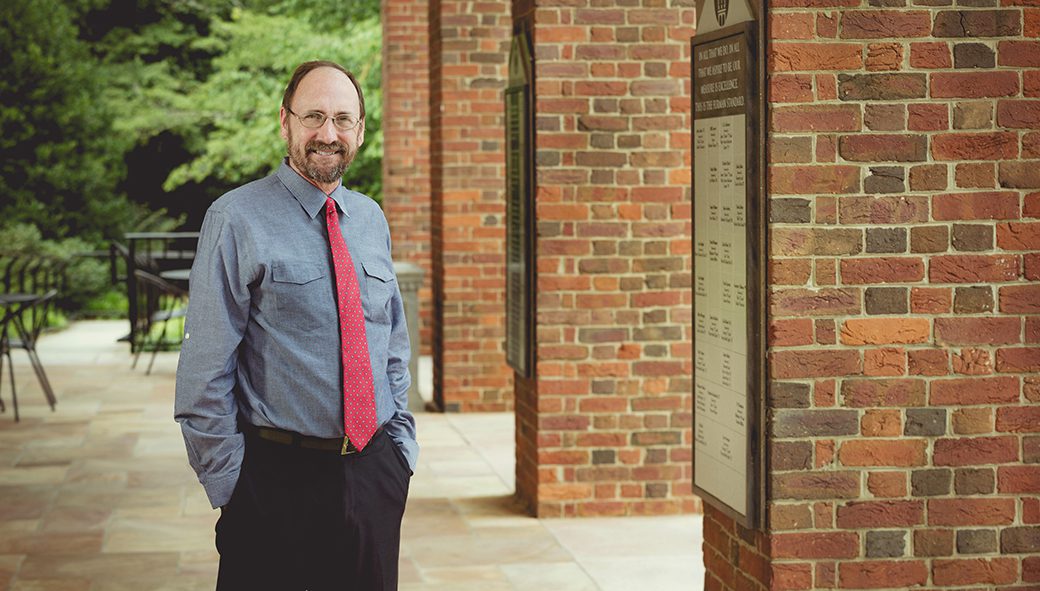Defining value

What do the liberal arts do for students? On Tuesday, February 21, Furman Vice President of Academic Affairs and Provost George Shields attempted to answer this before a group of faculty and staff.
There have been numerous articles on this topic from publications ranging from Inside Higher Ed to Forbes to the Wall Street Journal, all concluding the analytical and critical thinking skills that a robust liberal arts education provides make graduates educated in this way both engaged citizens and valuable employees.
Furman is one of more than 500 liberal arts colleges in the U.S., and the distinguishing characteristics of those schools is that they tend to be smaller, are most often private and focus on undergraduate education.
It is this focus on undergraduates that makes the critical difference. Shields said faculty focus on the things for which they are rewarded, and in large research universities research and publication are rewarded—leaving little time and energy to focus on undergraduate pedagogy, guidance, advising and relationship.
He talked about his own undergraduate experience in a large university where he felt intimidated about approaching his professors when he needed help, and lost in a sea of students as adrift as he. His education ended up feeling self-taught, he says, as he and other students gathered to decipher the curriculum from textbooks. At a liberal arts college that focuses on undergraduate students, on the other hand, students have the benefit of smaller classes and relationships with their professors.
Only 30% of U.S. adults have a college degree, and of those, only a small fraction were educated in liberal arts institutions. Therefore, it’s no wonder misperceptions about the value of liberal arts exist.
Asked why those misperceptions persisted, Shields held up two fingers and responded: “Two words: liberal and arts.” Those two words don’t mean what they sound like—the Latin term artes liberales refers to the subjects that were essential for individuals to take part in civil society. To modern ears, those words don’t necessarily sound as if they will provide what a growing number of students want to get out of an education: a job that pays well. Addressing that concern, Shields predicted , “The jobs of the future are the ones that can’t be automated.” Technology can replace manyjob functions, but it cannot replace creativity, collaboration, or critical thinking.
Dean of Faculty Ken Peterson added to the conversation, referring to what may be seen as liberal arts’ branding problem. “Some of it is our fault,” he said. “What’s easy to see about liberal arts is a list of classes and majors. What you can’t see is the experience . . . A rigorous approach to thinking and analysis is the hallmark of a liberal arts education.”
While they spoke generally about liberal arts education, they also more specifically addressed a Furman education. The recently unveiled Furman Advantage promises every student an unparalleled education that combines classroom learning with real-world experiences and self-discovery.
It’s a tall order to guarantee all of that to each student, but it’s only possible in a place that rewards faculty for engaging with students and the community. It will require a shift from being a university with excellent programs into a university where every student has an excellent experience. Faculty mentors who are mindful of individual students’ needs are critical to ensuring this promise is delivered
Furman makes possible a liberal arts education for non-traditional learners also. Shields identified what matters most to adult learners in Furman’s Undergraduate Evening Studies: “Jobs. Jobs. Jobs.” Local working adult students have a different experience from traditional on-campus students, therefore the Furman Advantage adjusts to their needs and respects their life journey by focusing on the student experience: individualized course plans, dedicated advisors, instructors with professional as well as academic experience, course delivery options, and career opportunities.